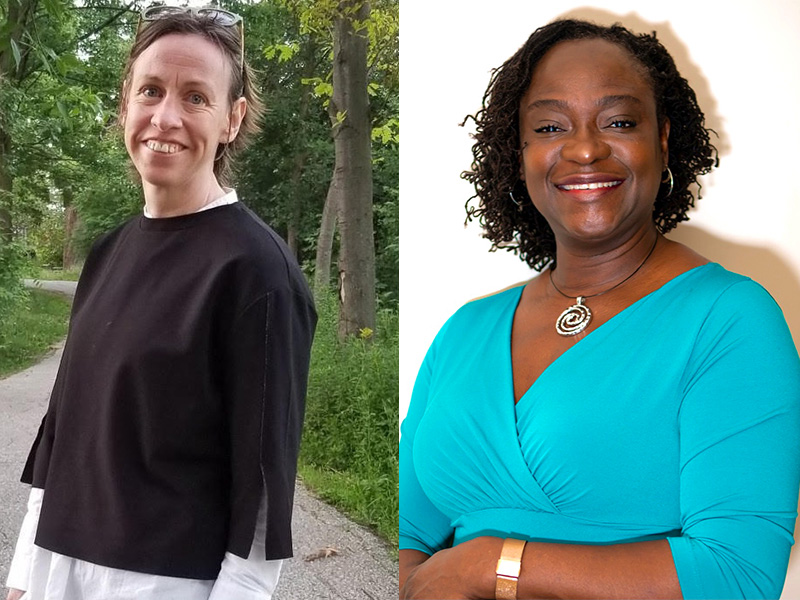Two research projects to explore suicide among Black youth, and accelerating accessibility in the arts

Professors Eliza Chandler (left) and Beverly-Jean Daniel (right) each received over $214K in SSHRC funding for their new research projects.
Congratulations to two FCS professors who received Insight Grants earlier this year from the Social Sciences and Humanities Research Council (SSHRC). The federal funding supports long-term research initiatives of two to five years that address complex issues regarding individuals and societies and that furthers collective understanding.
Exploring Self-Harm and Suicide Amongst Black Canadian Young People
Dr. Beverly-Jean Daniel, School of Child and Youth Care
Although suicide was the second-leading cause of death among 15-34 year old Canadians, young Black people were not historically considered high risk. However, research in the United States highlights the alarming increase in suicide among young Black people which is growing faster than any other same-age peers. Black girls there are also visiting emergency rooms in record numbers for self-harm and suicidality. Canada’s problem: a glaring lack of race-based research and data regarding Black populations which is a key lever to ultimately inform new policies on racially inclusive models of mental health care and community support.
To close the gap, child and youth care professor Dr. Beverly-Jean Daniel will conduct first-of-its-kind research in Canada. Her project will investigate suicidality and self-harm among young Black people across multiple provinces. It will uncover risk and protective factors for this demographic and also how parents, families and communities are impacted. Further, by working closely with mental health providers and community advocates, the project will seek to identify the types of interventions, programming and planning that are most needed and beneficial to better support this demographic.
“Understanding the impact of suicide and self-harm on Black families and communities is critical to identifying supports that can help reduce negative outcomes, prevent further self-violence, and contribute to community healing.”
Access Activations: Advancing Cultural Accessibility
Dr. Eliza Chandler, School of Disability Studies
Canada’s arts and culture sector has improved in making the arts more accessible. In recent years, there’s been an increase in dedicated funding, disability arts programming, and specialized services such as sign language interpreters. But are organizations tapping their full potential for true inclusivity — one that completely transforms how people create and engage with the arts, and even understand the very concept of access?
Disability studies professor Eliza Chandler will demonstrate how system-wide change can be accelerated using two keys: (1) implementing access plans that centre cultural accessibility planning and that surpass universal design standards; (2) working with disabled and other marginalized people to develop, test, and continually update access plans.
Her project is sending 26 Deaf, disabled, mad, and neurodivergent students working as “access activators” into arts and cultural organizations in every province and territory in Canada. There, they will work with the organization to develop access plans that centre and innovate cultural accessibility practices.
The outcomes could expand diversity not only for audiences, but also arts/culture administrators, technicians and practitioners — ultimately improving cultural policies and practices, increasing leadership and opening up meaningful employment opportunities for Deaf and disabled people.
“We have yet to see a critical mass of organizations make systemic, transformative changes to how we administer, create, and experience arts and culture in Canada. This project explores that potential through a ‘critical access’ framework.”


